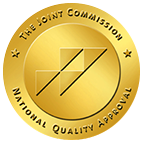
DUAL DIAGNOSIS: Alcoholism and Depression


Table of Contents
The Connection Between Alcoholism and Depression
In people with a diagnosis of alcoholism, depression also occurs in approximately 16% to 68% of this population. Although studies have had a difficult time determining the exact percentage of this population.
It is important to address both factors when treating alcoholism. The cycle of depression with alcohol leads to further drinking problems and behavioral health illnesses.
If you want to learn more about how these two diagnoses correlate, then keep reading on for information about alcoholism and depression.
Understanding Alcoholism
It is important to understand what causes alcohol and what causes depression to see how they are intertwined.
Alcohol does not contain any necessary or vital nutrients. It provides calories that the body uses for energy, but is not crucial for sustaining life. When someone consumes alcohol, it is filtered through the stomach and into the bloodstream.
Then, it hits the liver. The liver’s function in drinking is that it transitions acetaldehyde into acetate, which is further processed as sugar. Acetaldehyde does not combine very well with the human body.
In an alcoholic’s liver versus a nonalcoholic’s liver, the process of turning acetaldehyde into acetate is much slower. This leads to uncomfortable and disabling reactions throughout the body. They lead to the typical behaviors of someone who suffers from alcoholism.
While acetaldehyde causes many adverse reactions in the body, one of the main ones is pain. Typically, this results in alcoholics continuing to drink to avoid physical discomfort. It is also one of the main reasons that detoxifying from alcohol is a challenging process.
This compound is what blocks certain receptors in the brain and leads to characteristic behaviors of alcohol abuse and withdrawal symptoms.
Signs & Symptoms of Alcoholism
The official medical term of someone who drinks an excessive amount of alcohol is termed alcohol use disorder. There are a variety of signs that someone is abusing alcohol. These are not limited to the amount someone drinks, but rather specific behaviors such as:
Not being able to stop drinking
Drinking alone
Frequent blacking out from alcohol consumption
Irritability surrounding alcohol
Loss of interest in hobbies
Relationship or work problems
Negative side effects post-drinking (e.g. sweating, tremors, nausea)
Alcohol dependence happens when a person puts alcohol above relationships, work, and interests. What does over-consumption of alcohol result in?
There are two main neurotransmitters that alcohol impacts over time. Gamma-aminobutyric (GABA) is what regulates someone’s impulsivity. Additionally, glutamate is one of the most important neurotransmitters in the brain.
It assists in sending signals and maintaining a healthy central nervous system. Drinking also leads to an increase in dopamine.
You have likely heard of dopamine before. This is the reward hormone in our brain, and it strengthens the more you, or a loved one consumes alcohol.
Out of seven common symptoms, a person needs to show signs of three of them during the past year to receive the diagnosis of alcohol use disorder. Some common ones are:
Increased alcohol tolerance
Inability to self-regulate drinking
Withdrawal symptoms when cutting back
Spending most of time drinking
Understanding Depression
Depression is a behavioral health disorder that has long since plagued many people. As an individual diagnosis depression is a diagnosis made when someone has a loss of interest in their usual hobbies or relationships. It can also lead to feeling hopeless or sad.
Because it presents differently from person to person, it is critical to understand that there are many different depression symptoms. Here are a few typical ones, other than the initial ones noted above, that can indicate someone is depressed:
Insomnia or difficulty remaining sleep
High levels of fatigue
Restlessness
Brain fog
Feelings of worthlessness
Suicidal ideation
Normally, these symptoms are experienced frequently for at least two weeks. Women are more likely than men to experience these symptoms, and genetics plays a large role. In fact, some studies show there is a 40% likelihood of someone developing depression if their parents or siblings also have depression.
Causes of Depression
The debate about what causes depression has been a long-standing one. Some argue that it is situational, while others claim it has to do with brain chemistry.
So, what is actually going on?
Brain chemicals are thought to play less of a role in depression than the brain’s nervous system health. This means that nerve connections and cells may be more important to someone’s mood than was previously thought.
By using a positron emission tomography (PET) scan and single-photo emission computed tomography (SPECT) scan, researchers are better understanding what exactly is going on in the brain with someone who is depressed.
One study using these scans showed that women with a qualifying diagnosis had a 9% to 13% smaller hippocampus than non-depressed women. They also found that anti-depressants help create new neurons and pathways in this region of the brain.
Why is this brief science lesson important?
These scientists have drawn a conclusion that depression results in oversensitivity or decreased sensitivity to a neurotransmitter. Some of the common neurotransmitters that are impacted by depression are dopamine, glutamate, and GABA.
This sounds familiar. These are the same neurotransmitters that alcoholism impacts.
Is Depression Genetic, Environmental or Both?
A depression diagnosis is not only related to genetics, although there is an increased chance if you have close family members with it. Further research is needed to see the exact genes and sequencing that cause this higher risk.
You can still suffer from mental illnesses, even without a genetic link. How you view and respond to life is considered an important role. This often stems from childhood and how you dealt with loss, grief, or love.
Stress and trauma are also situations that lead to a higher risk of someone becoming depressed. Lastly, medications or recent debilitating medical diagnoses lead to greater risk.
How Can Alcoholism & Depression Co-Occur?
As you have already read, there are many similar symptoms and causes between alcoholism and depression. The two are interconnected in many different ways.
It is important to rely on treatment methods that manage both diagnoses to help the person return to a healthy and fulfilling life. One aspect that is difficult to determine is if depression leads to alcoholism or vice versa.
In the first scenario, someone who is having depressive thoughts and behaviors can turn to alcohol as a source of comfort. It is also commonly used as a form of self-medication.
On the flip side, if someone is a heavy drinker, they are more prone to develop depressive thoughts, which in turn lead to more drinking.
Both scenarios are highly debilitating to families and the patient. For this co-occurring illness to happen, researchers think there are three main causes.
This includes genetic predisposition, personality traits, and someone’s history. Personalities that are prone to negative outlooks on life or poor self-esteem are more at risk. Additionally, if someone has a history of trauma or abusive relationships, they may develop these illnesses.
Again – women are more at risk than men. Studies show that if a woman has a history of depression, they are two times more likely to develop an alcohol use disorder. Additionally, one-third of cases with depressive symptoms will go on to abuse alcohol.
In these studies, the depressive factor predisposes to alcohol abuse.
Treatment For Co-Occurring Alcoholism & Depression
There are a few different treatment plans out there to help. Medication is probably the easiest and most common treatment plan that people think of. Antidepressants are effective in balancing chemical levels and helping restore healthy neuropathways in the brain.
These medications usually take a few weeks to achieve the intended results. There are also prescription medications out there for alcohol cravings; make sure you talk to your physician about options.
Many people with these co-occurring illnesses need a more intensive treatment plan than medication alone. At this stage, you will likely see referrals to rehabilitation centers. The centers focus on different treatments, such as cognitive-behavioral therapy (CBT) and support groups.
These are beneficial to detoxifying someone off of alcohol and providing a safe space to work on improving one’s relationship with drinking. These rehab centers also give patients an opportunity to join in on group and individual sessions.
Finding a clinic that offers dual diagnosis treatments is the best choice for those who suffer from both discouraging illnesses. Some research suggests that 23 million Americans are dealing with a dual diagnosis.
Dual Diagnosis Treatment
Dual diagnosis therapy is useful for many patients who enter a rehab facility. A professional and qualified rehabilitation team will help patients work through the symptoms and behaviors that lead up to both of these diagnoses.
Additionally, you or your loved one should visit a center that has a smaller staff-to-patient ratio to ensure that only the best care is received. During someone’s stay in a rehab center for addiction and depression, the treatment plan includes counseling, rehabilitation, and further professional intervention.
These rehabilitation centers also include holistic therapies, such as art therapy and equine therapy. Holistic treatments are helpful in conjunction with other therapies.
Cognitive Behavioral Therapy
Commonly known as CBT, cognitive behavioral therapy is a common form of treatment that is often used in a variety of rehab centers. This is usually monitored by a skilled therapist who has experience with CBT.
This form of treatment focuses on identifying thoughts and belief systems that lead to negative behaviors. It also dives into the motivations behind alcoholism.
During this treatment, the therapist assists the patient in walking through the various triggers, thought processes, and actions. This provides the patient with lasting tools to use to manage their reactions to a situation.
The term “catastrophic thinking” is commonly seen in dual diagnosis patients. CBT helps to work through catastrophic thinking so that a person manages their anxiety in a healthier manner.
Finally, CBT also shows the person that past mistakes are just that – in the past. This treatment teaches patients how to work through their history and overcome challenges.
Holistic Treatment
Holistic treatments have their time and place in a recovery center. Many people find this treatment plan instrumental in their recovery.
There are many different forms of holistic treatment that include:
Wilderness therapy (this is especially useful for children and teenagers)
Meditation
Art therapy
Guided imagery
Equine therapy
Yoga
Acupuncture
Massage
There are plenty more options — meaning there is something for everyone. Participating in holistic remedies along with other treatment plans is vital to a strong recovery.
Holistic remedies and treatments provide participants with more meaningful life experiences. Once a person leaves rehab, they can carry on the skills and hobbies they picked up during their time in a rehab center.
This element is crucial to providing lasting, positive exposures to healthy hobbies.
Insurance and After-Care
Check with your insurance providers or state programs to get help with rehabilitation. Rehab centers often approve various insurances for their stays.
Each person’s length of stay in a rehab center will vary. Following discharge from the center, there is often outpatient or extended care.
These programs are useful in giving people an opportunity for involvement in their recovery outside of a structured program. Research also shows that social and environmental factors are critical to one’s recovery.
Planning For The Future
Alcoholism and depression are two illnesses that impact multiple lives. If you or your loved one is suffering from both of these, then don’t wait any longer to seek help.
There are professional and successful rehab programs out there. These programs specialize in addressing someone’s addiction to alcohol and the associated depression. Seeking assistance for your care means you are one step closer to finding joy and happiness in your life, relationships, and hobbies.
Contact New Method Wellness today and let one of our skilled representatives talk about the best options for you or your loved one.
Related Topics
Clinically Reviewed By:
Deanna J. Crosby, M.A., LMFT, LAADC, Psy.D. (C)
Deanna Crosby is a Licensed Marriage and Family Therapist (LMFT) with over 20 years of experience working with clients in recovery. Her expertise has catapulted her into the spotlight. Featured on several episodes of the Dr. Phil Show as a behavioral health expert, DeAnna is a routine contributor for NBC News, The Huffington Post, Elle Magazine, MSN, Fox News, Yahoo, Glamour, Today, and several other prominent media outlets.
After receiving her bachelor’s degree from the University of California in Irvine, Crosby did postgraduate work at Centaur University where she graduated at the top of her class with a CAADAC certification in Centaur’s chemical dependency program. Following her time at Centaur, Crosby received her Master of Counseling Psychology degree from Pacifica Graduate Institute, where she also attained a Doctoral Degree in Depth Psychology.
TAKE THE FIRST STEP
From all of us at New Method Wellness co-occurring treatment center, we wish you peace and serenity in knowing that you or your loved one will get the necessary help.
ACCREDITED BY:





